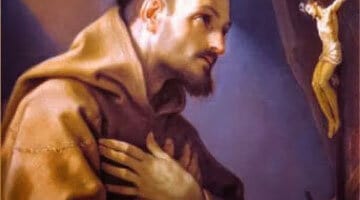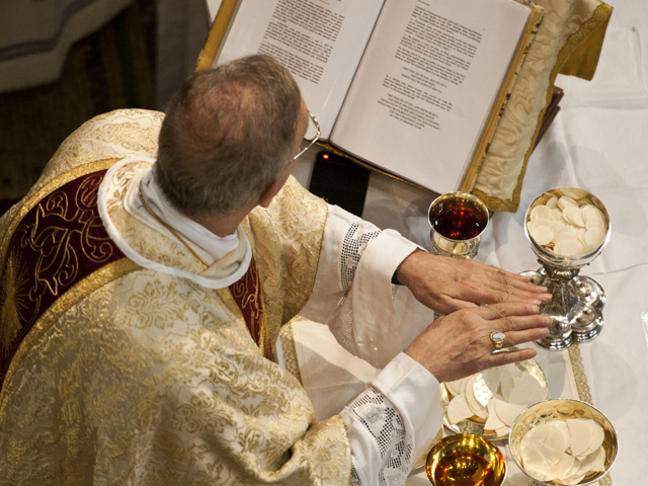St. Francis of Assisi was a man with a chivalrous heart (cf. Legend of the Three Companions, 3–4, 6). When he loved, he loved without reservation. As a young man, he was enthralled with the things of the world, but seized by the call of God, Francis progressed to higher things. Making God his only patrimony and entrusting himself to Him alone, Francis stripped himself of all possessions. The Knights claim the poor man of Assisi as the principal patron of their community and seek to live out the Franciscan motto, “My God and my All” (Acts of Blessed Francis, I:21).
The community is to be animated by the spirit and example of St. Francis, the Knight-Errant of Assisi. With him as their model, the Knights are directed toward incarnating the noble virtues of spiritual knighthood: deep faith, fiery enthusiasm for Christ, and readiness to battle spiritually for His Kingdom on earth. October 4 is celebrated as a Solemnity.
The Knights keep the Franciscan Calendar of Saints, honoring and venerating the other Franciscan saints and blesseds, especially St. Clare of Assisi, St. Anthony (the “Evangelical Doctor”), St. Bonaventure (the “Seraphic Doctor”) and St. Lawrence of Brindisi (the “Apostolic Doctor”).
In accordance with Franciscan tradition, the Knights should foster a special devotion to the Stations of the Cross and the Passion of our Lord, following the example of our Seraphic Father, St. Francis, was totally absorbed with the passion and death of our Lord Jesus Christ. Praying the Stations or meditating on the Passion is encouraged every Friday, and even daily during the season of Lent.
As sons of St. Francis in need of daily conversion, the Knights are called as individuals and as a community to live asceticism and penance. Their life of penance is meant to foster a perfect readiness to give themselves generously in mind, heart, and body. A wholesome spirit of asceticism is important in communal living, both in the self-denial of not being too bound up in one’s own preferences or points of view, and in giving brothers the opportunity to make good use of their talents and abilities without jealousy, envy, or rivalry.
Asceticism is directed to freeing a man from that which would hinder him from living in the truth. It intends to reclaim for the human spirit the dominion over the lower appetites that was lost through Original Sin. Christian asceticism takes on a deeper significance since it is profoundly linked to the incomprehensible mystery of how Our Lord emptied Himself (kenosis) in becoming man, and thus asceticism is undertaken in imitation of the self-emptying of Christ.



